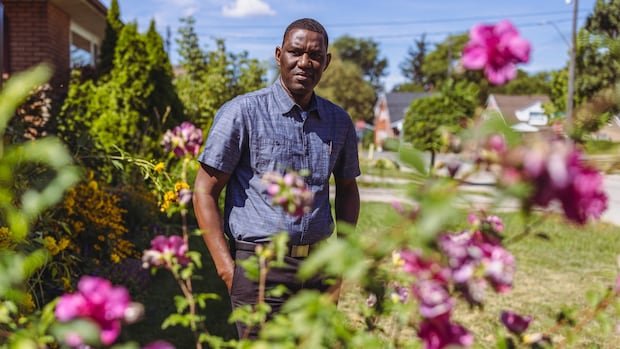In July, a Haitian individual named Maxen residing in Hamilton made a trip to the Canada-U.S. border in Quebec to meet his two sisters arriving from Miami. However, the anticipated reunion did not materialize as planned.
The two sisters, who left Haiti last year due to unrest, had initially aimed to settle in the U.S. However, following the termination of a humanitarian program by President Donald Trump’s administration for individuals from Cuba, Venezuela, Nicaragua, and Haiti, they opted to join Maxen in Canada, where he was already living. Their relative in Canada allowed them to seek asylum.
After a two-day bus journey, they reached the border, but Maxen discovered that Paulna, the younger sister traveling with her husband and three children aged 12, eight, and two, was missing when he arrived. It was later revealed that Paulna was turned away by Canadian border officials due to a paperwork discrepancy, likely caused by an additional name on her documents given by her parents at birth.
The family of five was taken to an Immigration and Customs Enforcement (ICE) detention center in southern Texas, where they have been held, with Maxen disclosing that they were separated into different cells and have required hospital visits at least twice. Allegations from a recent lawsuit suggest that families at the center in Dilley, Texas, including children, are facing challenges such as a lack of clean water and insufficient medical attention.
To protect their immigration case and avoid potential repercussions in Haiti upon deportation, CBC News refrains from disclosing the last names of Maxen and his family members. The elder sister, who has sought asylum in Canada, chose to remain anonymous.
Lawyers supporting the family highlighted Maxen’s case as part of a concerning pattern where asylum seekers wrongly rejected by Canada end up entangled in the complex American immigration detention system, limiting their access to legal representation.
Heather Neufeld, an immigration and refugee lawyer based in Ottawa, emphasized the need for the Canada Border Services Agency (CBSA) to reassess the Haitian family’s case and apply certain safeguards as directed by a 2023 Supreme Court of Canada decision to prevent vulnerable individuals from being sent back to perilous situations.
Continuing on this theme, Neufeld pointed out that the border agents are expected to investigate inconsistencies in paperwork by interviewing relatives, but this process is not consistently thorough, leaving individuals susceptible to detention and deportation.
Furthermore, Hana Marku, another immigration and refugee lawyer based in Toronto, shared an experience representing a Cuban man attempting to reunite with his wife in Quebec. The man was denied entry at the border, detained by ICE, and faced challenges in having his case reconsidered and approved by Canadian authorities.
The plight of families detained in the U.S., like Maxen’s sister and her family, was highlighted, revealing health issues and difficulties faced while in custody. Maxen expressed concerns about the well-being of his family and the lack of clarity surrounding their medical care and hospital visits.
The challenges faced by another family, Saba and Abdul Raqeeb from Pakistan, who sought asylum in Canada but were detained by U.S. authorities, shed light on the arduous journey and health struggles they encountered while in custody.
The article also touched upon the limitations in the asylum process, the experiences of detainees in ICE facilities, and the ordeal faced by individuals like Abdul Raqeeb, who opted for self-deportation due to harsh treatment in detention.
In conclusion, the story underscores the complexities and hardships faced by asylum seekers navigating the immigration systems of Canada and the U.S., shedding light on the need for improved processes and safeguards to protect vulnerable individuals seeking refuge.


